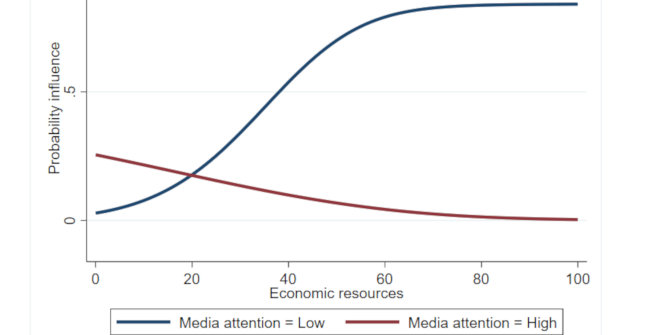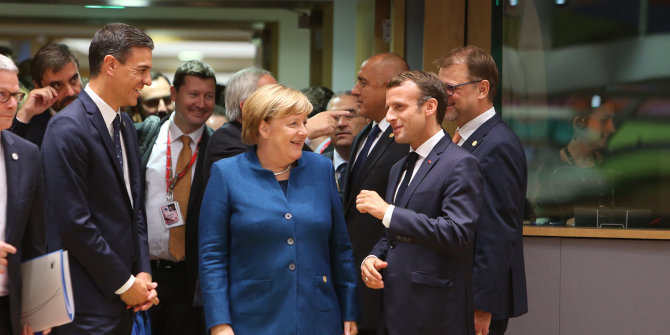Both the EU and the United States have dedicated programmes for providing compensation to workers made unemployed by globalisation. But does this funding have any impact on voting behaviour? Drawing on new research, Stephanie Rickard finds that additional assistance for globalisation-displaced workers provided by the European Globalisation Adjustment Fund does not significantly reduce voters’ support for one of Europe’s most prominent anti-globalisation political parties.
Can additional government support reduce voters’ opposition to globalisation? Governments support unemployed workers via an array of assistance programmes. Some programmes, such as the United States’ Trade Adjustment Assistance and the EU’s European Globalisation Adjustment Fund, provide additional support exclusively to workers made unemployed by globalisation. But do such programmes keep people from turning against globalisation?
In a recent study, I find that the additional assistance provided via the European Globalisation Adjustment Fund does not significantly changes voters’ support for one of Europe’s most prominent anti-globalisation parties – France’s National Front (Front national, FN), which in June 2018 changed its name to Rassemblement National (RN). The party tends to do better with voters in regions exposed to rising imports. However, in such regions, the party’s share of the vote remains roughly similar regardless of whether workers in the local area did or did not receive aid from the European Globalisation Adjustment Fund.
At best, the extra assistance for globalisation-displaced workers provided by the European Globalisation Adjustment Fund likely engenders a reduction in the protectionist party’s vote share of no more than 0.5 percentage points. The impact could be as little as zero and is almost surely no larger than 1.5 percentage points.
These findings emerge from a difference-in-differences research design that compares the change in the party’s vote shares between elections in two types of trade-exposed areas: (a) those in which globalisation-displaced workers received European Globalisation Adjustment Fund assistance (i.e. treated areas); and (b) those in which globalisation-displaced workers did not receive European Globalisation Adjustment Fund support (i.e. control areas).
Similar results emerge in Denmark where European Globalisation Adjustment Fund assistance has an insignificant effect on voters’ support for the Danish People’s Party (Dansk Folkeparti, DPP), which, like France’s Rassemblement National, expresses deep scepticism about globalisation.
The European Globalisation Adjustment Fund’s modest impact on protectionist parties’ vote shares does not imply that compensation is irrelevant or that providing greater support for displaced workers is an unworthy policy goal. Indeed, my findings suggest that targeted compensation programmes, like the European Globalisation Adjustment Fund, may marginally reduce voters’ support for protectionist political parties.
However, given the magnitude of the estimated effect, targeted compensation alone is unlikely to turn the tide of protectionist sentiment or anti-globalisation voting. Other programmes, such as ones that build a lifelong ladder of opportunity, may be required to give all citizens the human capital necessary to adapt to the forces of globalisation.
For more information, see the author’s accompanying paper in European Union Politics
Note: This article gives the views of the author, not the position of EUROPP – European Politics and Policy or the London School of Economics. Featured image credit: European Union





